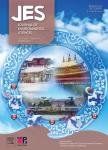Effects of methyl-,phenyl-,ethylmercury and mercurychlorid on immune cells of harbor seals(Phoca vitulina)
Effects of methyl-,phenyl-,ethylmercury and mercurychlorid on immune cells of harbor seals(Phoca vitulina)作者机构:GKSS Research CenterInstitute for Coastal Research Department of Immunology Laboratory Center Bremen
出 版 物:《Journal of Environmental Sciences》 (环境科学学报(英文版))
年 卷 期:2009年第21卷第12期
页 面:1716-1721页
核心收录:
学科分类:07[理学] 09[农学] 0903[农学-农业资源与环境] 0713[理学-生态学]
主 题:harbor seal mercury lymphocyte proliferation cytokine expression North Sea
摘 要:Mercury (Hg) is present in the marine environment as a natural metal often enhanced through human activities. Depending on its chemical form, Hg can cause a wide range of immunotoxic effects. In this study, the influence of methyl-, ethyl- and phenylmercury as well as mercurychloride on immune functions was evaluated. Two parameters of cellular immunity, proliferation and mRNA cytokine expression of interleukin-2, -4, and transforming growth factor β, were investigated in harbor seal lymphocytes after in vitro exposure to Hg compounds. While all Hg compounds had a suppressive effect on proliferation, differences between juvenile and adult seals were found. Lymphocytes from juveniles showed a higher susceptibility to the toxic effect compared to lymphocytes from adults. Furthermore, the degree of inhibition of proliferation varied among the four Hg compounds. The organic compounds seem to be more immunotoxic than the inorganic compound. Finally, for the cytokine expression of methylmercury-incubated lymphocytes, timedependent changes were observed, but no dose-dependency was found. Marine mammals of the North Sea are burdened with Hg, and lymphocytes of harbor seals may be functionally impaired by this metal. The present in vitro study provides baseline information for future studies on the immunotoxic effects of Hg on cellular immunity of harbor seals.



